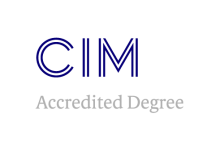
- Digital Marketing
MSc — 2026 entry Digital Marketing
Master the art and science of digital marketing on this masters programme. The course blends analytical customer-centric insights with practical expertise to prepare and empower you for success in the evolving digital landscape as a marketer.
4,138+ people have created a bespoke digital prospectus
Why choose
this course?
- As a digital marketing masters student, you’ll be based in Surrey Business School and be part of a vibrant community, focused on improving business practice and creating a sustainable and positive change.
- Digital marketing is at the forefront of modern business problem-solving – allowing organisations to connect, engage and understand their customers’ needs like never before.
- In the era of ‘big data’, where marketers are increasingly expected to make data-led decisions, the growing variety of digital channels offers countless exciting and creative opportunities to engage and interact with audiences in diverse ways. This masters in Digital Marketing equips you with the skills and practical applications of digital marketing concepts in an AI-driven environment.
- By the end of this course, you’ll be able to use your digital marketing knowledge to create engaging communication campaigns for both social media and more traditional channels. You’ll also have a practical understanding of various digital marketing skills applicable to current and future trends, from web analytics to social media insights, so you can make well-informed business decisions in a digital customer-centric economy.
- Prepare for leadership roles such as content marketing director, SEO manager, digital marketing manager or chief marketing officer, where success depends on aligning digital marketing metrics with corporate objectives and delivering measurable business value.
Statistics
Fantastic graduate prospects
91% of our Surrey Business School graduates go on to employment or further study (Graduate Outcomes 2025, HESA)
Top 100 in the world
For business administration and for management in the ShanghaiRanking's Global Ranking of Academic Subjects 2025
World-leading
Marketing is in the top 100 in the QS World University Rankings by Subject 2025
Accreditation


What you will study
Whether you choose the full-time 12, 15-month or part-time version, you’ll have the chance to explore a range of modern digital marketing topics in detail, including:
- Digital marketing strategy
- Social media marketing
- Entrepreneurship and the digital economy
- Web analytics.
This course is taught through interactive lectures, seminars and small-group laboratory sessions. You’ll also attend talks by industry guest speakers, who’ll share practical examples and help you reflect on what you learn, giving you the opportunity to develop your professional network.
This course offers a strong element of exposure to practice, with some projects (dissertations and assignments) having the potential to be conducted in collaboration with the industry, giving you more opportunities to develop your professional skills and enhance your employability in real-world situations.
The teaching of this course incorporates blended learning practices and is supported by the intended course structure, latest technologies and top-level research expertise within Surrey Business School.
Professional recognition
MSc - Association to Advance Collegiate Schools of Business (AACSB)
Accredited by the Association to Advance Collegiate Schools of Business (AACSB).
MSc - Chartered Institute of Marketing (CIM)
Accredited by The Chartered Institute of Marketing (CIM) for the purpose of gaining CIM qualifications through the Graduate Gateway.
The structure of our programmes follows clear educational aims that are tailored to each programme. These are all outlined in the programme specifications which include further details such as the learning outcomes:
Modules
Modules listed are indicative, reflecting the information available at the time of publication. Modules are subject to teaching availability, student demand and/or class size caps.
The University operates a credit framework for all taught programmes based on a 15-credit tariff, meaning all modules are comprised of multiples of 15 credits.
Course options
Year 1
Semester 1
Compulsory
Information and communication technology is changing the way companies interact with consumers. Technological evolution continues apace and marketers are seeking to exploit it in new, creative ways. This module provides a comprehensive framework for understanding the contextual, strategic and operational issues involved in the application of digital transformation to marketing. The course will be of particular value to students planning careers in digital marketing and marketing consulting.
View full module detailsThis module aims to help students recognize the role of web analytics within the digital marketing landscape, and practically apply web analytics tools and technologies to monitor performance of web-based marketing activities. The module involves both conceptual and practical aspects.
View full module detailsOptional
Services drive the modern economy, shaping how we communicate, travel, manage finances, receive healthcare, and conduct business¿accounting for over three-quarters of GDP and employment in most developed countries. Mastering the marketing and management of services as unique, exceptional experiences is essential for service companies seeking to thrive in a competitive landscape. This module equips students with advanced knowledge and expertise on services marketing, customer experience management, and relationship marketing. It also introduces cutting-edge topics, including the transformative role of digital technologies, the imperative of building responsible and ethical service organizations, and the strategic management of service platforms and ecosystems.Through a combination of rigorous theoretical principles and applied learning, students will analyse real-world case studies, use AI-enabled tools and apply consultancy-based workbooks to develop critical thinking and analytical skills and make strategic and impactful decisions. By the end of the module, students will have acquired the knowledge and hands-on skills needed to design and manage exceptional service experiences, harness digital technologies for service innovation, and build responsible service organisations, preparing them to become strategic service leaders in their future careers.
View full module detailsIn this module, students develop a holistic understanding of the theory and tools for Entrepreneurship which has a particular relevance in the context of the Digital Economy. This begins with a discussion of key concepts around the Entrepreneur, Opportunity Recognition and the Entrepreneurial Process. In turn, students review key elements for a start-up including resources, the founding team and business modelling. Finally, we look at scaling strategies in the Digital Economy including a range of different business models where start-ups create, deliver and capture value. The Digital Economy enables these innovative business models. For assessment, students research and apply Key Entrepreneurship Topics to case studies and then critically evaluate the scaling strategy for a designated emerging-growth companies in the Digital Economy using Entrepreneurship theory, Digital Economy theory and a business model framework.
View full module detailsSemester 2
Compulsory
This module introduces students to the concept and current practices in marketing analytics. Technology advances of the past decade have dramatically enhanced marketers' means of collecting and analysing data to measure the effectiveness of their marketing strategies. This module is designed to provide students with an overview of state-of-the-art marketing analytics practices that guide marketing executives in their strategic decisions. The module focuses on introducing students to key analytical techniques with an emphasis on interpreting results and generating strategic insights for marketing decision-making. The course will be of particular value to students planning careers in marketing and management consulting. The course is designed for students with a basic understanding of univariate and bivariate statistics. Addressing different learning styles, the following teaching methods are applied in this course: Pre-readings, Lectures, Class Exercises, Class Discussions, and Real World Cases/Industry Insights.
View full module detailsSocial media marketing is an emerging and rapidly developing discipline with substantive changes periodically occurring in industry and academic research. While much of social media marketing is focused on the promotional mix, it also is used for customer care, research and more. The field has shifted from one focused on the influence of individual consumers in social channels to one including bots, AI, and influencers. This module provides students with both academic (theories and concepts) and practical grounding underlying strategic decisions for the use of social media for marketing and the implications of the emerging developments in the area. Discussions, study cases and examples will bring these theories to life.
View full module detailsThe main aim of this module is to get students ready for conducting professional and academic (dissertation) research. Whereas all stages of a research process are covered in this module, the clear focus is on conducting qualitative and quantitative studies to support marketing decisions in response to business opportunities or problems. More specifically, this module offers the relevant framework for making the informed marketing decisions. The module is organized around the stages of a marketing research project (e.g. problem definition, design, data collection, data analysis, and documentation). The course will be of particular value for students planning careers in marketing research and marketing consulting.
View full module detailsThe dissertation is compulsory to all the three MSc Marketing programmes; International Marketing (IM), Strategic Management (SM) and Digital Marketing (DM). This module provides an opportunity for a sustained period of independent study and research. It allows students to concentrate on marketing and retail topics that are of particular interest to them. It also gives an opportunity for students to work independently with individual supervisors. The dissertation follows the standard academic pattern of identifying a topic arising from a gap in the literature and developing a methodology to explore this area in depth. The module will be run by the Marketing Department, and as such the students will have the opportunity to work in a smaller group and will receive better feedback and personal attention, thus enhancing student satisfaction and increasing progress in learning and understanding.
View full module detailsOptional
Consumer Behaviour is evident in everyday life, therefore knowledge and understanding of this subject can be beneficial to personal decision-making as well as to marketing and strategy formulation, both in offline and online environments. The module Perspectives on Consumer Behaviour deals with a range of theoretical, practical techniques in understanding and researching consumer consumption behaviour and how such an understanding can be used to create successful and viable marketing strategies. This module gives students the opportunity to explore theories and leading-edge research findings and apply knowledge by conducting small group discussion and/or activities. Thus, reflective, and critical applications of relevant behavioural, cognitive, and socio-cultural approaches to consumption are discussed.
View full module detailsThis module provides students practical and theoretical knowledge of International Marketing in contexts, operations, and strategies. It aims to develop students’ critical thinking and ability to apply and adapt theories to cases in international marketing.
View full module detailsInternationalisation is a very substantive feature of the retail industry, with implications for retail competition, retailer strategy, retail development, digitalisation and supply chain management among other issues. A considerable and growing body of academic and practitioner literature surrounds this issue. It highlights some of the potential complexities and enduring challenges of retailing in an international environment and provides a valuable body of knowledge to inform future international marketing managers and retail marketing managers.
View full module detailsStudents put theory into practice for digital skills by working in a group project with designated companies around a business challenge. The business challenge relates to key skills in the Digital Economy such as digital marketing. In the module, students develop an understanding of key topics related to the theory before applying the key skills. We bring in outside speakers from industry to create an authentic learning experience. For the project, students have two points of assessment to support the learning. Students develop other business skills such as problem-solving, project management, collaboration and resilience which they participate in the project. This supports programme objectives to develop an understanding of theory and practice related to Digital Economy as well as to develop skills relevant for Entrepreneurship.
View full module detailsOptional modules for Year 1 (full-time) - FHEQ Levels 6 and 7
For further information regarding programme structure and module selection, please refer to the course catalogue.
Year 1
Semester 1
Compulsory
Information and communication technology is changing the way companies interact with consumers. Technological evolution continues apace and marketers are seeking to exploit it in new, creative ways. This module provides a comprehensive framework for understanding the contextual, strategic and operational issues involved in the application of digital transformation to marketing. The course will be of particular value to students planning careers in digital marketing and marketing consulting.
View full module detailsThis module aims to help students recognize the role of web analytics within the digital marketing landscape, and practically apply web analytics tools and technologies to monitor performance of web-based marketing activities. The module involves both conceptual and practical aspects.
View full module detailsThe main aim of this module is to get students ready for conducting professional and academic (dissertation) research. Whereas all stages of a research process are covered in this module, the clear focus is on conducting qualitative and quantitative studies to support marketing decisions in response to business opportunities or problems. More specifically, this module offers the relevant framework for making the informed marketing decisions. The module is organized around the stages of a marketing research project (e.g. problem definition, design, data collection, data analysis, and documentation). The course will be of particular value for students planning careers in marketing research and marketing consulting.
View full module detailsOptional
Services drive the modern economy, shaping how we communicate, travel, manage finances, receive healthcare, and conduct business¿accounting for over three-quarters of GDP and employment in most developed countries. Mastering the marketing and management of services as unique, exceptional experiences is essential for service companies seeking to thrive in a competitive landscape. This module equips students with advanced knowledge and expertise on services marketing, customer experience management, and relationship marketing. It also introduces cutting-edge topics, including the transformative role of digital technologies, the imperative of building responsible and ethical service organizations, and the strategic management of service platforms and ecosystems.Through a combination of rigorous theoretical principles and applied learning, students will analyse real-world case studies, use AI-enabled tools and apply consultancy-based workbooks to develop critical thinking and analytical skills and make strategic and impactful decisions. By the end of the module, students will have acquired the knowledge and hands-on skills needed to design and manage exceptional service experiences, harness digital technologies for service innovation, and build responsible service organisations, preparing them to become strategic service leaders in their future careers.
View full module detailsIn this module, students develop a holistic understanding of the theory and tools for Entrepreneurship which has a particular relevance in the context of the Digital Economy. This begins with a discussion of key concepts around the Entrepreneur, Opportunity Recognition and the Entrepreneurial Process. In turn, students review key elements for a start-up including resources, the founding team and business modelling. Finally, we look at scaling strategies in the Digital Economy including a range of different business models where start-ups create, deliver and capture value. The Digital Economy enables these innovative business models. For assessment, students research and apply Key Entrepreneurship Topics to case studies and then critically evaluate the scaling strategy for a designated emerging-growth companies in the Digital Economy using Entrepreneurship theory, Digital Economy theory and a business model framework.
View full module detailsSemester 2
Compulsory
This module introduces students to the concept and current practices in marketing analytics. Technology advances of the past decade have dramatically enhanced marketers' means of collecting and analysing data to measure the effectiveness of their marketing strategies. This module is designed to provide students with an overview of state-of-the-art marketing analytics practices that guide marketing executives in their strategic decisions. The module focuses on introducing students to key analytical techniques with an emphasis on interpreting results and generating strategic insights for marketing decision-making. The course will be of particular value to students planning careers in marketing and management consulting. The course is designed for students with a basic understanding of univariate and bivariate statistics. Addressing different learning styles, the following teaching methods are applied in this course: Pre-readings, Lectures, Class Exercises, Class Discussions, and Real World Cases/Industry Insights.
View full module detailsSocial media marketing is an emerging and rapidly developing discipline with substantive changes periodically occurring in industry and academic research. While much of social media marketing is focused on the promotional mix, it also is used for customer care, research and more. The field has shifted from one focused on the influence of individual consumers in social channels to one including bots, AI, and influencers. This module provides students with both academic (theories and concepts) and practical grounding underlying strategic decisions for the use of social media for marketing and the implications of the emerging developments in the area. Discussions, study cases and examples will bring these theories to life.
View full module detailsOptional
Consumer Behaviour is evident in everyday life, therefore knowledge and understanding of this subject can be beneficial to personal decision-making as well as to marketing and strategy formulation, both in offline and online environments. The module Perspectives on Consumer Behaviour deals with a range of theoretical, practical techniques in understanding and researching consumer consumption behaviour and how such an understanding can be used to create successful and viable marketing strategies. This module gives students the opportunity to explore theories and leading-edge research findings and apply knowledge by conducting small group discussion and/or activities. Thus, reflective, and critical applications of relevant behavioural, cognitive, and socio-cultural approaches to consumption are discussed.
View full module detailsThis module provides students practical and theoretical knowledge of International Marketing in contexts, operations, and strategies. It aims to develop students’ critical thinking and ability to apply and adapt theories to cases in international marketing.
View full module detailsInternationalisation is a very substantive feature of the retail industry, with implications for retail competition, retailer strategy, retail development, digitalisation and supply chain management among other issues. A considerable and growing body of academic and practitioner literature surrounds this issue. It highlights some of the potential complexities and enduring challenges of retailing in an international environment and provides a valuable body of knowledge to inform future international marketing managers and retail marketing managers.
View full module detailsStudents put theory into practice for digital skills by working in a group project with designated companies around a business challenge. The business challenge relates to key skills in the Digital Economy such as digital marketing. In the module, students develop an understanding of key topics related to the theory before applying the key skills. We bring in outside speakers from industry to create an authentic learning experience. For the project, students have two points of assessment to support the learning. Students develop other business skills such as problem-solving, project management, collaboration and resilience which they participate in the project. This supports programme objectives to develop an understanding of theory and practice related to Digital Economy as well as to develop skills relevant for Entrepreneurship.
View full module detailsAcross academic years
Compulsory
The module is available as an alternative to the Placement module offered on the MSc programme that a student is enrolled in. The Study Abroad module supports students’ academic, personal and professional development as global citizens preparing for a borderless career that requires cross-cultural awareness, ability to collaborate with international partners and navigate different business systems and complex international work arrangements. The Study Abroad module is concerned with holistic academic and non-academic learning. Additionally, the module aims to enable students to evidence and evaluate their study abroad experiences and transfer that learning to other situations.
View full module detailsOptional modules for Year 1 (full-time with study abroad - 15 months) - FHEQ Level 7
For further information regarding programme structure and module selection, please refer to the course catalogue.
Year 1
Semester 1
Compulsory
Information and communication technology is changing the way companies interact with consumers. Technological evolution continues apace and marketers are seeking to exploit it in new, creative ways. This module provides a comprehensive framework for understanding the contextual, strategic and operational issues involved in the application of digital transformation to marketing. The course will be of particular value to students planning careers in digital marketing and marketing consulting.
View full module detailsThis module aims to help students recognize the role of web analytics within the digital marketing landscape, and practically apply web analytics tools and technologies to monitor performance of web-based marketing activities. The module involves both conceptual and practical aspects.
View full module detailsOptional
Services drive the modern economy, shaping how we communicate, travel, manage finances, receive healthcare, and conduct business¿accounting for over three-quarters of GDP and employment in most developed countries. Mastering the marketing and management of services as unique, exceptional experiences is essential for service companies seeking to thrive in a competitive landscape. This module equips students with advanced knowledge and expertise on services marketing, customer experience management, and relationship marketing. It also introduces cutting-edge topics, including the transformative role of digital technologies, the imperative of building responsible and ethical service organizations, and the strategic management of service platforms and ecosystems.Through a combination of rigorous theoretical principles and applied learning, students will analyse real-world case studies, use AI-enabled tools and apply consultancy-based workbooks to develop critical thinking and analytical skills and make strategic and impactful decisions. By the end of the module, students will have acquired the knowledge and hands-on skills needed to design and manage exceptional service experiences, harness digital technologies for service innovation, and build responsible service organisations, preparing them to become strategic service leaders in their future careers.
View full module detailsIn this module, students develop a holistic understanding of the theory and tools for Entrepreneurship which has a particular relevance in the context of the Digital Economy. This begins with a discussion of key concepts around the Entrepreneur, Opportunity Recognition and the Entrepreneurial Process. In turn, students review key elements for a start-up including resources, the founding team and business modelling. Finally, we look at scaling strategies in the Digital Economy including a range of different business models where start-ups create, deliver and capture value. The Digital Economy enables these innovative business models. For assessment, students research and apply Key Entrepreneurship Topics to case studies and then critically evaluate the scaling strategy for a designated emerging-growth companies in the Digital Economy using Entrepreneurship theory, Digital Economy theory and a business model framework.
View full module detailsSemester 2
Compulsory
This module introduces students to the concept and current practices in marketing analytics. Technology advances of the past decade have dramatically enhanced marketers' means of collecting and analysing data to measure the effectiveness of their marketing strategies. This module is designed to provide students with an overview of state-of-the-art marketing analytics practices that guide marketing executives in their strategic decisions. The module focuses on introducing students to key analytical techniques with an emphasis on interpreting results and generating strategic insights for marketing decision-making. The course will be of particular value to students planning careers in marketing and management consulting. The course is designed for students with a basic understanding of univariate and bivariate statistics. Addressing different learning styles, the following teaching methods are applied in this course: Pre-readings, Lectures, Class Exercises, Class Discussions, and Real World Cases/Industry Insights.
View full module detailsSocial media marketing is an emerging and rapidly developing discipline with substantive changes periodically occurring in industry and academic research. While much of social media marketing is focused on the promotional mix, it also is used for customer care, research and more. The field has shifted from one focused on the influence of individual consumers in social channels to one including bots, AI, and influencers. This module provides students with both academic (theories and concepts) and practical grounding underlying strategic decisions for the use of social media for marketing and the implications of the emerging developments in the area. Discussions, study cases and examples will bring these theories to life.
View full module detailsOptional modules for Year 1 (part-time) - FHEQ Levels 6 and 7
For further information regarding programme structure and module selection, please refer to the course catalogue.
Year 2
Semester 1
Compulsory
The main aim of this module is to get students ready for conducting professional and academic (dissertation) research. Whereas all stages of a research process are covered in this module, the clear focus is on conducting qualitative and quantitative studies to support marketing decisions in response to business opportunities or problems. More specifically, this module offers the relevant framework for making the informed marketing decisions. The module is organized around the stages of a marketing research project (e.g. problem definition, design, data collection, data analysis, and documentation). The course will be of particular value for students planning careers in marketing research and marketing consulting.
View full module detailsSemester 2
Compulsory
The dissertation is compulsory to all the three MSc Marketing programmes; International Marketing (IM), Strategic Management (SM) and Digital Marketing (DM). This module provides an opportunity for a sustained period of independent study and research. It allows students to concentrate on marketing and retail topics that are of particular interest to them. It also gives an opportunity for students to work independently with individual supervisors. The dissertation follows the standard academic pattern of identifying a topic arising from a gap in the literature and developing a methodology to explore this area in depth. The module will be run by the Marketing Department, and as such the students will have the opportunity to work in a smaller group and will receive better feedback and personal attention, thus enhancing student satisfaction and increasing progress in learning and understanding.
View full module detailsOptional
Consumer Behaviour is evident in everyday life, therefore knowledge and understanding of this subject can be beneficial to personal decision-making as well as to marketing and strategy formulation, both in offline and online environments. The module Perspectives on Consumer Behaviour deals with a range of theoretical, practical techniques in understanding and researching consumer consumption behaviour and how such an understanding can be used to create successful and viable marketing strategies. This module gives students the opportunity to explore theories and leading-edge research findings and apply knowledge by conducting small group discussion and/or activities. Thus, reflective, and critical applications of relevant behavioural, cognitive, and socio-cultural approaches to consumption are discussed.
View full module detailsThis module provides students practical and theoretical knowledge of International Marketing in contexts, operations, and strategies. It aims to develop students’ critical thinking and ability to apply and adapt theories to cases in international marketing.
View full module detailsInternationalisation is a very substantive feature of the retail industry, with implications for retail competition, retailer strategy, retail development, digitalisation and supply chain management among other issues. A considerable and growing body of academic and practitioner literature surrounds this issue. It highlights some of the potential complexities and enduring challenges of retailing in an international environment and provides a valuable body of knowledge to inform future international marketing managers and retail marketing managers.
View full module detailsStudents put theory into practice for digital skills by working in a group project with designated companies around a business challenge. The business challenge relates to key skills in the Digital Economy such as digital marketing. In the module, students develop an understanding of key topics related to the theory before applying the key skills. We bring in outside speakers from industry to create an authentic learning experience. For the project, students have two points of assessment to support the learning. Students develop other business skills such as problem-solving, project management, collaboration and resilience which they participate in the project. This supports programme objectives to develop an understanding of theory and practice related to Digital Economy as well as to develop skills relevant for Entrepreneurship.
View full module detailsOptional modules for Year 2 (part-time) - FHEQ Levels 6 and 7
For further information regarding programme structure and module selection, please refer to the course catalogue.
General course information
Contact hours
Contact hours can vary across our modules. Full details of the contact hours for each module are available from the University of Surrey's module catalogue. See the modules section for more information.
Timetable
New students will receive their personalised timetable during Welcome Week. In later semesters, at least one week before the start of the semester.
Scheduled teaching can take place on any day of the week (Monday – Friday), with part-time classes normally scheduled for one or two days. Wednesday afternoons tend to be for sports and cultural activities.
View our code of practice for the scheduling of teaching and assessment (PDF) for more information.
Location
This course is based at Stag Hill campus. Stag Hill is the University's main campus and where the majority of our courses are taught.
We offer careers information, advice and guidance to all students whilst studying with us, which is extended to our alumni for three years after leaving the University.
Your career prospects include:
- Ad manager
- Content marketing manager
- Content strategist
- Data analyst
- Digital marketing manager
- Digital marketing strategist
- E-commerce channel manager
- SEO manager
- Social media manager.


Hriday Dayanand
Student - Digital Marketing and Channel Management MSc (named Digital Marketing from 2023)


Ivalena Martinova
Student - Digital Marketing and Channel Management (named Digital Marketing from 2023) MSc
UK qualifications
A minimum of a 2:2 UK honours degree, or a recognised equivalent international qualification.
We may be able to take relevant work experience into consideration if you don't meet these requirements. If you have at least one year of relevant experience in a full-time graduate-level role (or a minimum of two years’ experience in a relevant graduate-level part-time role) please provide full details of your role and responsibilities in your personal statement and CV when you submit your application.
English language requirements
| Course length | IELTS Academic requirements or equivalent |
|---|---|
| Full-time: 1 year | 6.5 overall including 6.0 in each category |
| Full-time (with study abroad): 15 months | 6.5 overall including 6.0 in each category |
| Part-time: 2 years | 6.5 overall including 6.0 in each category |
These are the English language qualifications and levels that we can accept.
If you do not currently meet the level required for your programme, we offer intensive pre-sessional English language courses, designed to take you to the level of English ability and skill required for your studies here.


International Pre-Masters
Prepare for postgraduate study and boost your career prospects. This is an intensive programme of academic subjects, study skills and English language preparation designed to help you succeed.
Recognition of prior learning
We recognise that many students enter their course with valuable knowledge and skills developed through a range of ways.
If this applies to you, the recognition of prior learning process may mean you can join a course without the formal entry requirements, or at a point appropriate to your previous learning and experience.
There are restrictions for some courses and fees may be payable for certain claims. Please contact the Admissions team with any queries.
Study and work abroad
Our 15-month MSc Digital Marketing course can also provide you with the opportunity to study abroad and support your academic, personal and professional development as a global citizen.
If you choose and secure a place at a partner university, you’ll complete two semesters (nine months) of study at Surrey and spend a semester studying abroad. This means you can complete your course in 15 months studying full-time. You'll also not be required to write a dissertation.
If you decide not to study abroad or don't secure a place, you’ll complete nine months of study followed by three months working on your dissertation, meaning you can complete your course in 12 months studying full-time.
Scholarships and bursaries
Discover what scholarships and bursaries are available to support your studies.
Fees per year
Explore UKCISA’s website for more information if you are unsure whether you are a UK or overseas student. View the list of fees for all postgraduate courses.
September 2026 - Full-time - 1 year
- UK
- £15,800
- Overseas
- £25,900
September 2026 - Full-time (with study abroad) - 15 months
- UK
- £16,500
- Overseas
- £27,500
September 2026 - Part-time - 2 years
- UK
- £7,900
- Overseas
- £13,000
- These fees apply to the academic year 2026-27 only. Fees are reviewed annually, and tuition fees may increase for courses running over more than one year.
Payment schedule
- Students with Tuition Fee Loan: the Student Loans Company pay fees in line with their schedule (students on an unstructured self-paced part-time course are not eligible for a Tuition Fee Loan).
- Students without a Tuition Fee Loan: pay their fees either in full at the beginning of the programme or in two instalments as follows:
- 50% payable 10 days after the invoice date (expected to be October/November of each academic year)
- 50% in January of the same academic year.
- Students on part-time programmes where fees are paid on a modular basis: cannot pay fees by instalment.
- Sponsored students: must provide us with valid sponsorship information that covers the period of study.
The exact date(s) will be on invoices.
Additional costs
Students are required to pay the upfront cost of travel and accommodation expenses incurred when on placement when not covered by the placement provider. These may vary depending on the location.
Funding
You may be able to borrow money to help pay your tuition fees and support you with your living costs. Find out more about postgraduate student finance.
Apply online
To apply online first select the course you'd like to apply for then log in.
Select your course
Choose the course option you wish to apply for.
Sign in
Create an account and sign into our application portal.
Please note that we may have to close applications before the stated deadline if we receive a high volume of suitable applications. We advise you to submit your application as soon as it is ready.
ApplyPlease note that we may have to close applications before the stated deadline if we receive a high volume of suitable applications. We advise you to submit your application as soon as it is ready.
ApplyPlease note that we may have to close applications before the stated deadline if we receive a high volume of suitable applications. We advise you to submit your application as soon as it is ready.
ApplyAdmissions information
Once you apply, you can expect to hear back from us within 14 days. This might be with a decision on your application or with a request for further information.
Our code of practice for postgraduate taught admissions explains how the Admissions team considers applications and admits students. Read our postgraduate applicant guidance for more information on applying.
About the University of Surrey
Need more information?
Contact our Admissions team or talk to a current University of Surrey student online.
Terms and conditions
When you accept an offer to study at the University of Surrey, you are agreeing to follow our policies and procedures, student regulations, and terms and conditions.
We provide these terms and conditions at offer stage and are shown again at registration. You will be asked to accept these terms and conditions when you accept the offer made to you.
View our generic registration terms and conditions (PDF) for the 2025/26 academic year, as a guide on what to expect.
Disclaimer
This online prospectus has been published in advance of the academic year to which it applies.
Whilst we have done everything possible to ensure this information is accurate, some changes may happen between publishing and the start of the course.
It is important to check this website for any updates before you apply for a course with us. Read our full disclaimer.








